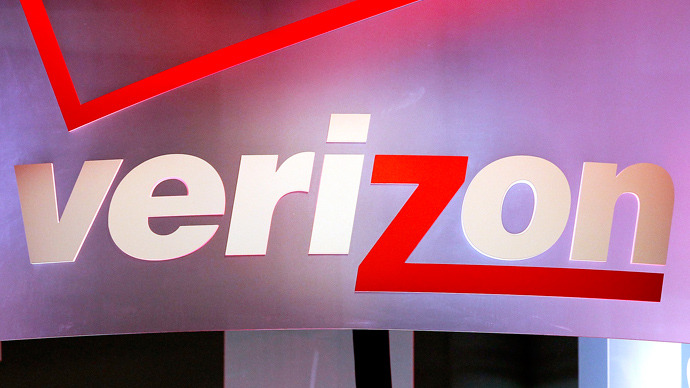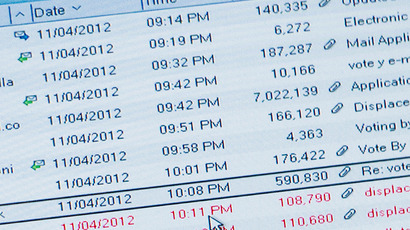Top-secret court order reveals NSA's daily data collection on millions of Americans

The US National Security Agency is currently collecting the telephone records of millions of unwitting individuals via a secret court order issued in April obtained by The Guardian newspaper, which has posted it online.
Unlike warrants that have been issued to collect the information
of suspects targetted by intelligence agencies, the newly
disclosed top secret order requires Verizon, one of the largest
telecom agencies in the US, to provide both the FBI and the NSA
information on all telephone calls made through its systems, both
domestically and to foreign countries.
According to a copy of the order, Verizon is required to disclose
the numbers of both parties during a call, as well as location,
call duration, and other unique data on an "ongoing, daily basis.” Meaning
that, regardless of whether an individual is suspected of or
linked to any crime, the data of all Verizon customers is
currently being delivered in bulk to the intelligence agency.
As to the authority claimed by the government via this order,
that is specifically cited to fall under the “business records”
provision of the PATRIOT Act of 2001, which was granted a
four-year extension by President Obama in May of 2011.
It remains unclear as to whether the order, which spans a
three-month period, represents a single instance, or is
indicative of recurring cases of Verizon and other telephony
providers being ordered to disclose all their clients' call
records.

The order itself, signed by Judge Roger Vinson of the Foreign
Intelligence Surveillance Court, prohibits Verizon from alerting
its customers of the FBI’s request for their records.
The Obama
administration confirmed that it is collecting massive numbers of
telephone records from at least one carrier, but said that it is
only recording data such as telephone numbers or call lengths,
not subscribers' identities or the content of their calls.
Verizon has declined a request for comment by RT.
Though the agencies have yet to respond to the publication of the
secret order, justification for the thus far unprecedented,
warrantless request made to Verizon in April would fall under the
interpretation of such “business records.” The latter applies to
a wide-ranging amount of electronic “metadata,” though not the actual
content of texts and voice calls.
The order seems likely to be associated with the NSA’s
longstanding collection program over telephone, Internet and
email data, which was secretly authorized by former president
Bush in 2001, though not disclosed publicly until a 2006 USA
Today report. That particular authorization applied to multiple
carriers: AT&T, Verizon and BellSouth, and was intended to
allow US intelligence services “to analyze calling patterns in an
effort to detect terrorist activity."
Julian Sanchez, a surveillance expert with the libertarian Cato
Institute who spoke to The Guardian believes that the newly
disclosed court order undermines the legal definition of
reasonable suspicion.
"We've certainly seen the
government increasingly strain the bounds of 'relevance' to
collect large numbers of records at once — everyone at one or two
degrees of separation from a target — but vacuuming all metadata
up indiscriminately would be an extraordinary repudiation of any
pretense of constraint or particularized suspicion," said
Sanchez.













